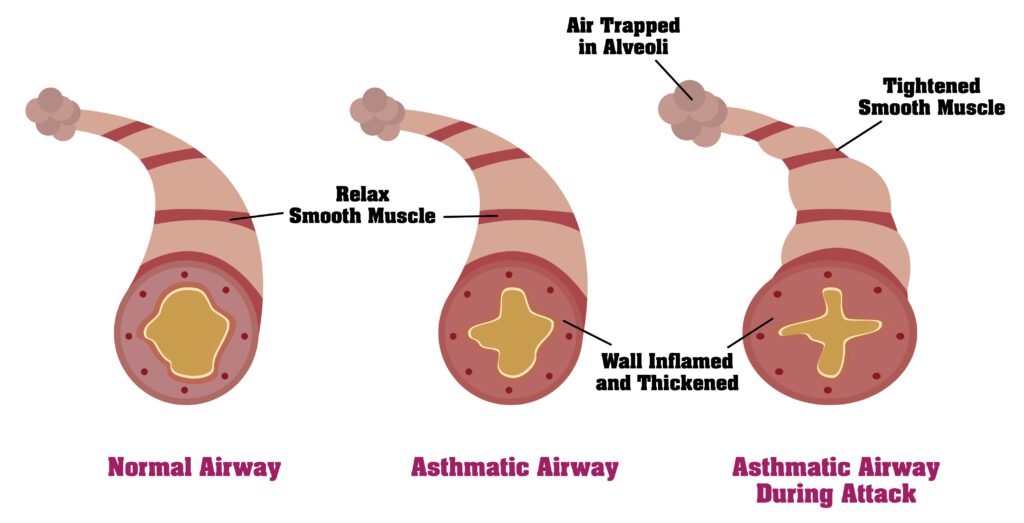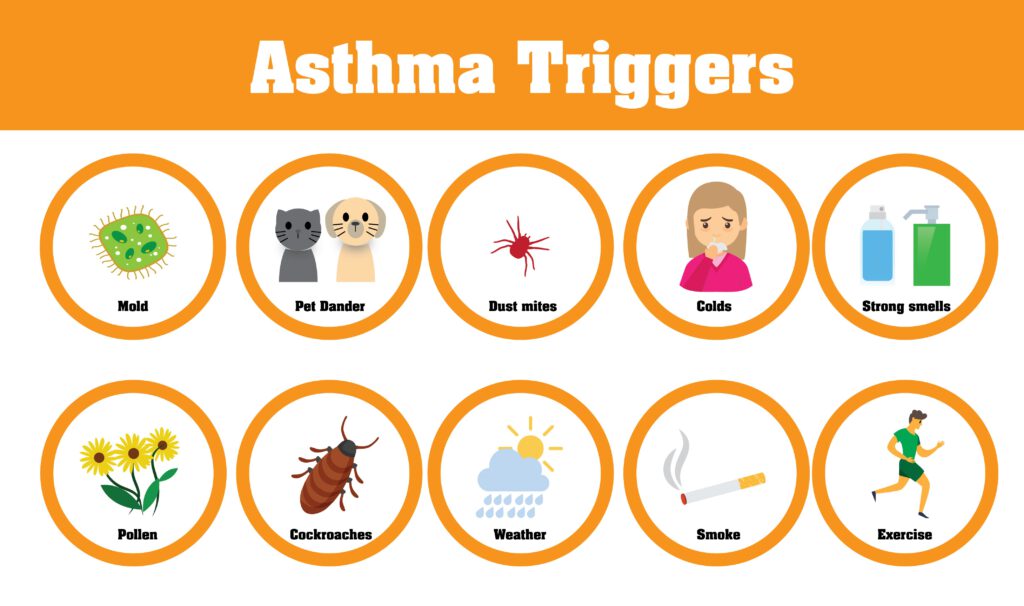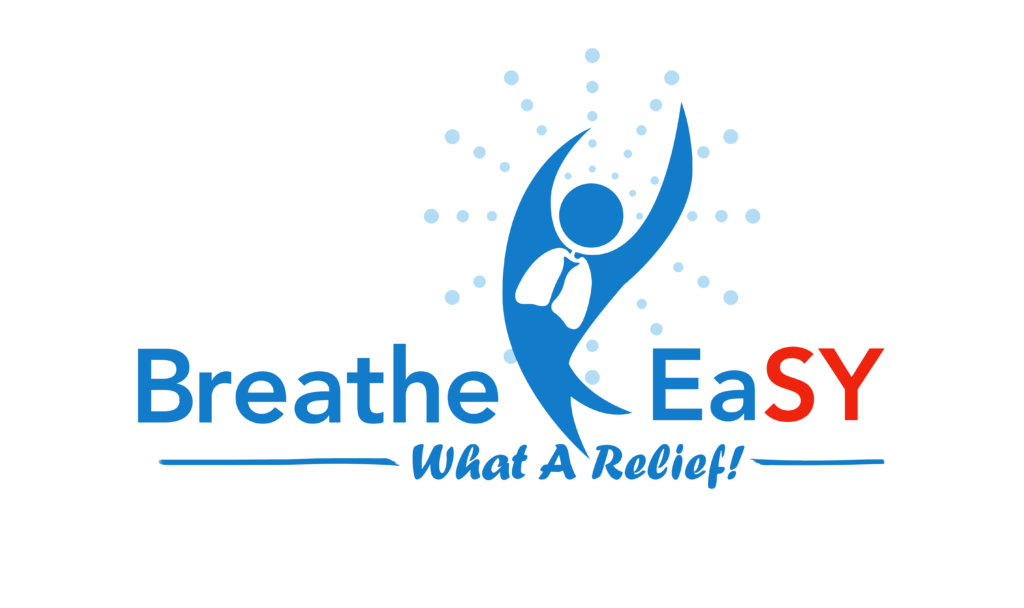- Home
- Health Center
- Health Info
- Breathe Easily. You Can Control Your Asthma.
Asthma
Breathe Easily. You Can Control Your Asthma.


What is Asthma?
Asthma is a disease of the airways and can be triggered by irritants (or allergens) such as viruses, cold air, pollution, smoke or animal dander entering the lungs and provoking a response. This leads to inflammation and narrowing of the airways and the recognizable symptoms such as wheezing, shortness of breath, coughing or chest tightness.

What We Really Need to Understand?
Who would believe that as per the latest WHO data which published in May 2014, Asthma Deaths in Malaysia reached up to 1,642 or 1.28% of total deaths. The age adjusted death rate is 8.22 per 100,000 of population that ranks Malaysia #58 in the world.
Most asthma patients have mild disease, although the burden of mild asthma is not well understood nor studied. Mild asthma imposes a substantial burden on patients, establishing the need for comprehensive management plans and ongoing support for treatment adherence.
Optimal control and preventions of future complications in important for all levels of asthma severity. The most frequently reported symptom was shortness of breath during exertion.
Research suggests many patients perceive their asthma as controlled and not serious despite the occurrence of symptoms and exacerbations. Low adherence was evident for approximately a third of patients in the survey.
It is conceivable that patients are unaware of the distinction between poor and good asthma control and may not understand how their symptoms could be better controlled with appropriate medical therapy.
To summarize, there are four major factors which influence the asthma patients’ compliance:
- Level of literacy of inhaler technique
- Attitude towards asthma management
- In-depth knowledge about asthma
- Symptom of asthma attack

What Is an Asthma Attack?
An asthma attack may include coughing, chest tightness, wheezing, and trouble breathing. The attack happens in your body’s airways, which are the paths that carry air to your lungs. As the air moves through your lungs, the airways become smaller, like the branches of a tree are smaller than the tree trunk. During an asthma attack, the sides of the airways in your lungs swell and the airways shrink. Less air gets in and out of your lungs, and mucous that your body makes clogs up the airways.
You can control your asthma by knowing the warning signs of an asthma attack, staying away from things that cause an attack, and following your doctor’s advice. When you control your asthma:
- you won’t have symptoms such as wheezing or coughing,
- you’ll sleep better,
- you won’t miss work or school,
- you can take part in all physical activities, and
- you won’t have to go to the hospital.

What Causes an Asthma Attack?
An asthma attack can happen when you are exposed to “asthma triggers.” Your asthma triggers can be very different from someone else’s asthma triggers. Know your triggers and learn how to avoid them. Watch out for an attack when you can’t avoid your triggers. Some of the most common triggers are tobacco smoke, dust mites, outdoor air pollution, cockroach allergen, pets, mold, smoke from burning wood or grass, and infections like flu.

How Is Asthma Treated?
It’s never too late to start. If you have asthma, talk to your healthcare provider about:
- Your medications
- What are the medication for?
- How much to take?
- When to use the medication?
- How to use your inhaler correctly?
- What are your asthma triggers and how to avoid them?
- Warning signs of an asthma attack and what you should do if your symptoms get worse?
Take your medicine exactly as your doctor tells you and stay away from things that can trigger an attack to control your asthma.
Everyone with asthma does not take the same medicine.
Asthma medicines come in two types—quick-relief and long-term control. Quick-relief medicines control the symptoms of an asthma attack. If you need to use your quick-relief medicines more and more, visit your doctor to see if you need a different medicine. Long-term control medicines help you have fewer and milder attacks, but they don’t help you while you are having an asthma attack.
Asthma medicines can have side effects, but most side effects are mild and soon go away. Ask your doctor about the side effects of your medicines.
Remember – you can control your asthma before your asthma control you. With your doctor’s help, make your own asthma action plan. Decide who should have a copy of your plan and where he or she should keep it. Take your long-term control medicine even when you don’t have symptoms.

Tips For Successful Asthma Management
Other than that there are some tips for successful asthma management:
- Know the warning signs of an attack
- Avoid things that may trigger an attack
- Follow the advice of your healthcare provider
- Create a personal Asthma Action Plan that suit you
- Use your asthma medicine as prescribed
References:
- World Asthma Day – Asthma Awareness Toolkit | CDC. (2019). Retrieved from https://www.cdc.gov/asthma/world_asthma_day.htmDing, B., & Small, M. (2017). Disease burden of mild asthma: Findings from a cross-sectional real-world survey. In European Respiratory Society Congress 2016.
Brought to you by:


Visit Breathe EaSY Facebook page to join their Community Support Programme: https://www.facebook.com/breatheeasymalaysia
Tags
Latest Health Info
Brave the Cold: Winter Travel Needs
Winter travel has its kind of magic — snow-covered landscapes, cozy lodges, hot drinks, and festive markets. But traveling in ...
Beat the Heat When Travelling
Whether you’re on a scenic beach vacation or exploring a busy city, hot weather can quickly wear you out and ...
Got Pins & Needles? Learning about Diabetic Neuropathy
Diabetic neuropathy is a common yet serious complication of diabetes, estimated to affect up to 50% of people with the ...



